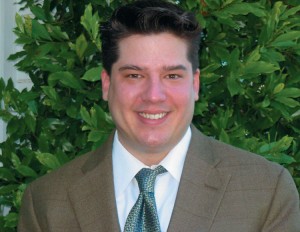Massively controversial but often overlooked is the institution of the coroner. Inherited from Great Britain back in colonial days, the position originated as the King’s investigator who kept track of deaths and, more importantly, collected some last death taxes. Today the coroner performs autopsies—a practice one assumes would require special training and expertise. It does not. Much like the money-collecting coroners of yore, the 2,000 coroners across the US may or may not be qualified individuals with ulterior motives. The person exploring the death of a loved one, which has massive implications for family and for the courtroom, may have no idea what he or she is doing.
How is this so? Coroners are publicly elected government employees. Requirements for the position vary widely but often include only a short training workshop. This means that anyone with or without medical expertise simply has to run a good campaign to become a coroner. In fact, Indiana’s youngest coroner was elected while still in high school. Questionable figures such as Dr. Gill, a man notorious for showing up drunk on the job, somehow maintained a career despite many cited mistakes, buried evidence and firings. These examples underscore the ongoing neglect of a vital part of the end of life experience; they demonstrate that something needs to change.
But if change were simple, it would already have happened. One may wish simply to
replace the coroner’s office with a medical examiner system, which operates, according to PBS, “under the direction of a licensed physician, who is almost always trained in pathology and forensic science,” but there are simply not that many forensic pathologists. This “chronic shortage” of them explains why many counties, particularly when sparsely populated, as in North Dakota, have to settle with someone less qualified. The long-established coroner’s office, moreover, are “usually written into a state constitution…and generally don’t have large enough populations nor budgets to support the conversion [to a medical examiner system]”. Check out what system your state has established here.
No matter how the solution is solved an additional issue must be addressed: the election of funeral directors as coroners. Aside from all other issues relating to the coroner’s office, this practice is the most controversial and unjust. Funeral directors are supposedly experts on death, so why wouldn’t they make good coroners? First, this is because expertise in memorial services by no means implies expertise in forensic science. The two fields are unrelated.
Secondly, and more importantly, consider the massive conflict of interest between the two positions. The coroner needs to complete a thorough investigation of the cause of death, but the funeral director wants to keep his business by moving the transaction as quickly as possible. Some funeral director/coroners even promote their own businesses while dealing with families who have just lost a loved one. Funeral director Ernie Heffner from Milton, Pennsylvania experienced this firsthand when the coroner’s election became a popularity contest between funeral directors in which the winner gains a massive, unfair advantage. Josh Slocum, executive director of the Funeral Consumers Alliance, calls this practice an “an egregious abuse of government authority” and directly states, “there should be a law that prevents funeral directors from becoming coroners.”
But this practice, thankfully, is something we can change simply by paying attention. Wherever a coroner’s office cannot be replaced or reformed, we can at least know who not to vote for. We must remember that the death industry, like any industry, looks for ways to advance its own ends. It is our job to create within our communities the change we hope to see in end of life investigations.
More from Something Special:
- End of Life Care Scare: Passages Hospice Charged with Fraud
- Americans Lacking in Advance Directives for End of Life Planning
- NPR Announces New Series: “Conversations On The Afterlife”

 Corruption and Incompetence in the Coroner’s Office
Corruption and Incompetence in the Coroner’s Office





 “As Tears Go By” by Marianne Faithfull
“As Tears Go By” by Marianne Faithfull
 “The Sea” by John Banville
“The Sea” by John Banville














